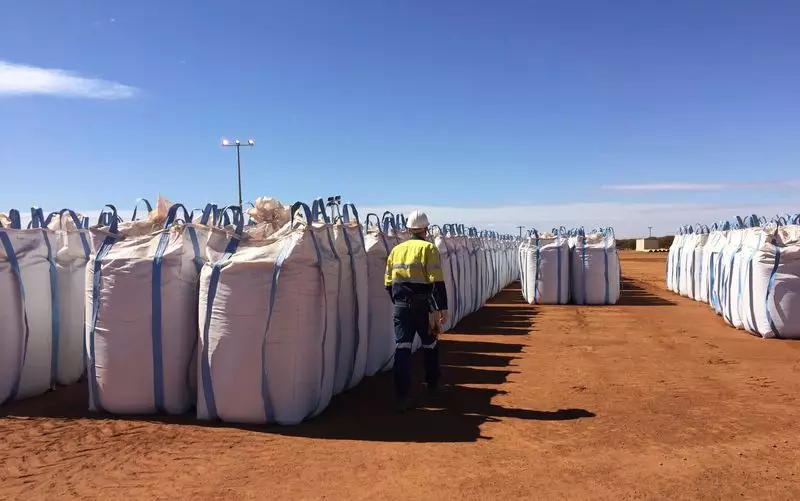Global supply chains for rare earths are undergoing a significant realignment in an effort to diversify away from China, the top producer of rare earth materials. This shift is aimed at reducing the West’s dependence on Chinese imports for rare earth compounds, metals, and magnets essential for various industries such as electric vehicles, wind turbines, and drones. Companies around the world are either establishing or expanding production facilities to ensure a stable supply of rare earth materials outside of China.
Lynas Rare Earths, based in Australia, is the largest supplier of rare earth compounds globally, operating outside of China. The company sources rare earth materials from its Mount Weld mine in Australia and has processing facilities in Australia and Malaysia. Lynas is currently constructing a heavy rare earths processing plant in Texas, funded by $288 million from the U.S. defense sector, expected to be operational by fiscal 2026. This facility will be capable of processing materials from third-party suppliers, further diversifying the rare earths supply chain.
Belgian chemicals maker Solvay is expanding its rare earth processing capabilities at its operations in La Rochelle, France. The company aims to begin separating and producing rare earth oxides essential for permanent magnet production by 2025. Solvay currently processes rare earths for various applications, including auto catalysts. Additionally, Solvay has collaborated with French partner Carester to explore manufacturing opportunities for the permanent magnets supply chain in Europe. The company also has agreements in place to procure rare earth oxides from recycled materials, contributing to a more sustainable supply chain.
Vacuumschmelze, a prominent permanent magnet producer based in Germany, has operations in several countries, including Germany, Slovakia, Finland, China, and Malaysia. The company was recently acquired by U.S. private equity firm Ara Partners and received $111.6 million in U.S. government funding to establish a neodymium-iron-boron magnet plant in South Carolina, expected to be operational by late 2025. Vacuumschmelze holds a magnet supply agreement with General Motors and provides magnets to the U.S. Department of Defense, reinforcing its position in the global rare earth supply chain.
UK-based Less Common Metals specializes in producing rare earth metals and alloys from its facility in northern England. The company is part of the European Supreemo project, which aims to establish a comprehensive rare earth value chain in Europe. By contributing to the development of a regional supply chain, Less Common Metals plays a crucial role in reducing dependency on Chinese imports.
The realignment of the global rare earths supply chain signifies a significant shift in the sourcing and production of essential materials for various industries. Companies worldwide are investing in new facilities and expanding their processing capabilities to reduce reliance on China and ensure a stable supply of rare earth compounds, metals, and magnets. This strategic diversification aims to enhance market competitiveness, strengthen supply chain resilience, and promote sustainability in the production of critical materials.

